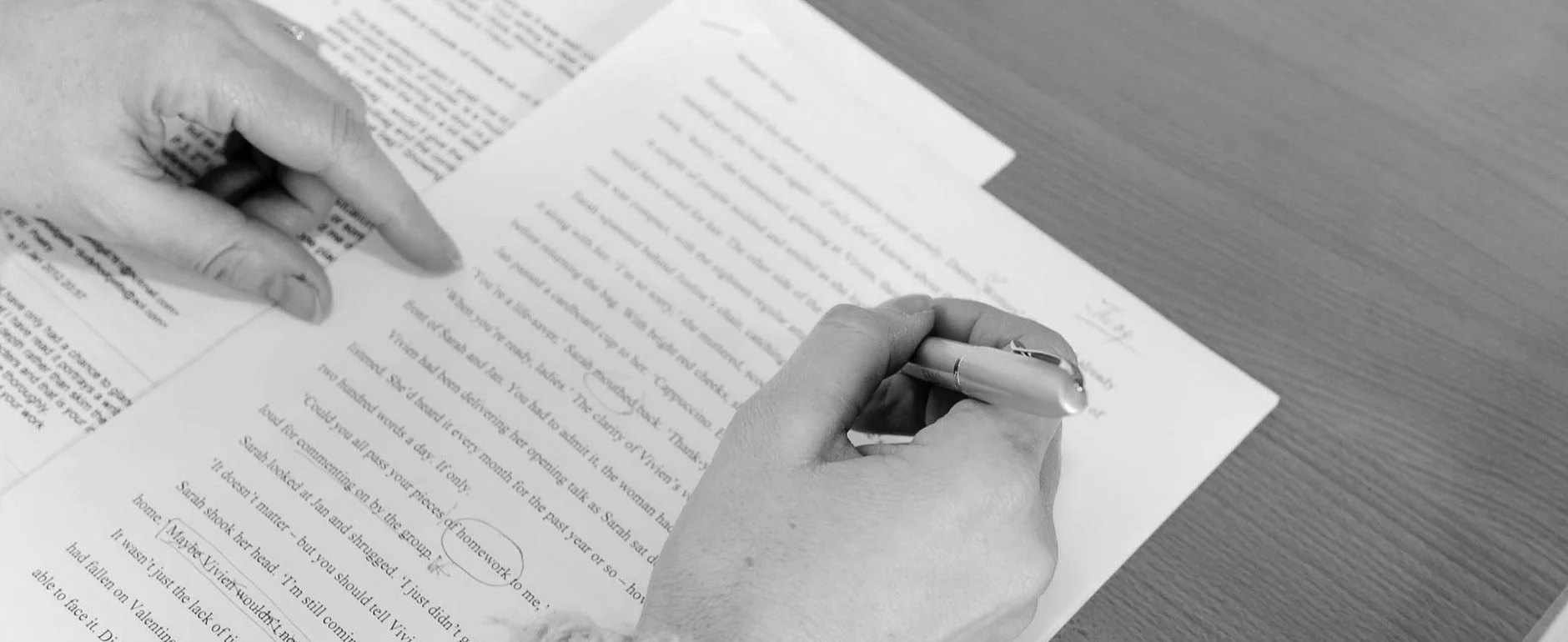Can you edit your own writing?
The answer to this question is Yes, but…
Yes, of course, a writer can edit their writing and I would recommend that they do at least one round of edits before sending their script to a professional editor. No writer’s first draft is perfect and many writers will do many rounds of self-editing as part of their writing process before they are happy with their script.
But, in my opinion, self-editing is not enough. In this article, I will explain why. Generally, a writer imagines and creates, while an editor interprets and refines. So a good editor will polish an author’s words.
It is also important to remember that there are different types of editing – I will be writing a blog on this soon! Editing is the removal of errors, but what errors? There is editing of typos, correction of word choices, confusing sentences and grammar-based errors. Then there is the checking of facts and plots, paths not explored, and ambiguities highlighted. When paying for an editing service it is important that an author knows what they are paying for – and what they will get out of it.
The benefit of self-editing
The main benefit of self-editing is that it saves money, and who doesn’t want to do that? A writer will pick up structural and grammatical errors in their work and improve their writing’s readability and overall quality. The more rounds of editing a writer does, the cleaner the manuscript will be. However, they will miss things as they know what should be there, and what they mean. So the more editing a writer does, the cleaner their manuscript will be, and the less work an editor will need to do… saving money!
Here’s a quick tip – read your copy aloud. Hearing the words can highlight poor sentences, overuse of particular phrases and unnecessary words, grammatical mistakes, and punctuation errors. The best writing flows smoothly, so if you find yourself stumbling through sentences you know they need improving. You could also use a text-to-speech program to read your script aloud.
When self-editing embrace re-reading as it isn’t a one-off process! Multiple read-throughs will improve your manuscript each time. It is also a great idea to break the editing down into manageable tasks, for example:
First edit: Look at the big picture, do you have a good introduction to hook your reader? Does the content/story flow logically? Do you have a great ending?
Second edit: look at your sentence and paragraph structure, check for repetition, and double-check facts and figures.
Third edit: check sentence length, word use, and spelling.
The disadvantages of self-editing
A writer isn’t always the best judge of their script. They will either be over-confident about it and be blind to any faults or suffer from imposter syndrome and see nothing but faults… or anything in between! An editor, who is not emotionally attached to a manuscript, will look at it from a reader’s point of view and can be much more detached.
A writer will not be as objective about their script as an editor, honestly. The writer is too close to their words, characters, and story; it is all too personal. They know what their words are meant to say, but that may not have portrayed scenes as clearly as they think. An editor’s eye will pick this up and ensure that a script is clear and the reader isn’t left guessing and frustrated.
A writer is a creative storyteller and draws on a different skill set than an editor who should have the skill to work with a writer’s words and voice, spot mistakes and polish the script. A talented editor will work quickly, accurately, and effectively.
Any writer will want their manuscript/book to be the best it can be. So after completing the massive task of writing a book, it is wise for a writer to pass their script to an editor who can take the burden from them to go through the script with a fine tooth comb to ensure that it shines.
So, can you edit your own writing?
Yes you can as self-editing will improve your script, and possibly future writing. But for your story to be as good as it can be, it is prudent to seek the outside perspective of a professional editor. They will clarify your script and correct grammar, spelling and punctuation issues. Professional editing can be expensive, but it is a worthwhile investment. Your editor should work with your words and ideas, and polish them to ensure your content is readable, enjoyable, and impactful for your readers.
Another tip: Save proofreading for the end, it’s the last step before publishing. Through all the editing stages, sentences and paragraphs may be re-written, and completely new text may be introduced, so errors may creep in at these stages. So, while you shouldn’t ignore mistakes while editing, remember to include a final proofread when the book has been typeset.
I hope this helps xx
* * *
Cornerstone pa services is here to help YOU and YOUR business.
Do get in touch if you need editorial or admin support.

